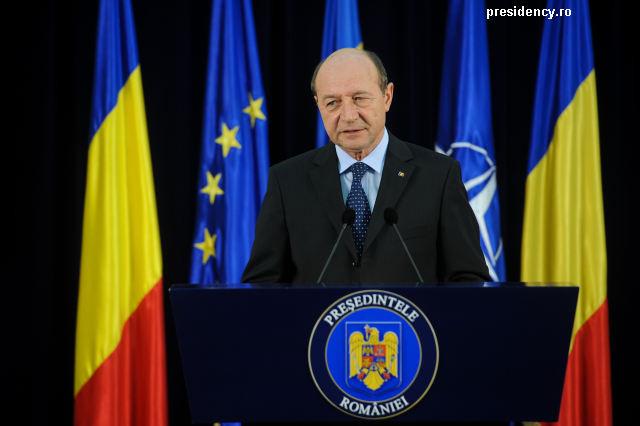Hungarian extremism in Romania
An unauthorised rally held on Monday in the central Romanian town of Targu Mures by far-right organisations from Hungary supported by local ethnic Hungarians degenerated into a clash with the riot police. Masked protesters threw firecrackers, forced their way past security cordons to the roadway and shouted anti-Romanian slogans. They also demanded the territorial autonomy of the so-called Szecklers’ Land, the only region in Romania with a majority ethnic Hungarian population.

Bogdan Matei, 12.03.2014, 13:54
An unauthorised rally held on Monday in the central Romanian town of Targu Mures by far-right organisations from Hungary supported by local ethnic Hungarians degenerated into a clash with the riot police. Masked protesters threw firecrackers, forced their way past security cordons to the roadway and shouted anti-Romanian slogans. They also demanded the territorial autonomy of the so-called Szecklers’ Land, the only region in Romania with a majority ethnic Hungarian population.
The incidents have caused concern throughout the country, being reminiscent of events in March 1990, when inter-ethnic tensions, fuelled by Hungarian chauvinists and agents of Romania’s former secret police, turned into violence and made victims among both Romanians and ethnic Hungarians. Today, Romania and Hungary are allies within NATO and the European Union, while the Romanian and ethnic Hungarian communities in Romania have been living together in a civilised, if not always cordial, manner. The main political party representing the ethnic Hungarian minority in Romania — the Democratic Union of Ethnic Hungarians in Romania — has recently joined the new cabinet in Bucharest.
Visibly irritated by the recent incidents in Targu Mures, president Traian Basescu called on government and parliament to issue a law to ban the presence in Romania of the Hungarian extremist party Jobbik, the organiser of Monday’s rally. He also said he wanted the issue debated at the upcoming meeting of the country’s Supreme Defence Council:
“Freedom, democracy, the right to free movement and the freedom of speech cannot go so far as to harm others through their extremist approach. Jobbik is an extremist party and embarrassment even for the Budapest authorities, who avoid making any alliances with it. I don’t see why we should be ashamed to throw them out of the country or deny their access to Romania’s territory.”
Hungary’s third biggest party after the Conservatives and the Socialists, Jobbik is one of the most virulent far right and nationalist movements. The leader of Romania’s National Liberal Party, Crin Antonescu, who has recently joined the opposition, says he agrees with President Basescu on this matter. The Democratic Union of Ethnic Hungarians in Romania has also distanced itself from any violent and extremist actions. The Union’s leader, deputy prime minister Kelemen Hunor:
“I don’t agree with people coming from Hungary, whether it’s Jobbik or any other organisation, and staging protests here in Romania, in Targu Mures or elsewhere. “
Political analysts have pointed out that Hungary will soon hold Euro-parliamentary and legislative elections and that the actions of Jobbik members are only meant to bring them more votes.






























